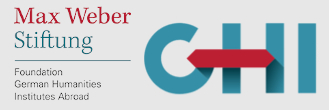The Project
Innovation through tradition? Jewish Educational Media and Cultural Transformation in the Face of Modernity
From the final third of the eighteenth century onward, large parts of the Ashkenazi Jews, particularly those living in German-speaking regions, lived through a process of socio-cultural transformation which, with regional and social variations, generally accelerated as it continued and impacted all aspects of their lifeworlds (Lebenswelten), from the socio-economic structures and communal organizations of the Jewish populations to the nature and function of their religious lives, ritual practices and learned discourse. Be it values and social norms, the corpus of Jewish knowledge and its long-standing hierarchies, ideas around education and the raising of children, or languages, customs and habitus, there was barely an area of everyday Jewish life which did not eventually experience profound and far-reaching change. The project’s purpose is to explore these multi-layered processes of transformation through the lens of educational media. A key focus of our work is the significance of religious and cultural tradition as a point of reference and space for reflection in this context; we proceed from the assumption that people’s recourse to what they felt to be familiar enabled them to accept and assimilate into their lifeworlds entirely new features and concepts, to define and redefine what belonged to and united them, and thus to help shape processes of transformation rather than attempting to fend them off.
When we speak in this context of innovation and tradition, we refer both to the content taught by Jewish educational media of the time and to the formats and forms in which it was presented, ranging from traditional media such as prayer books to textbooks, an emergent medium of the period, which were adapted for religious, historical and language instruction. The project also analyses teaching and learning materials which were not exclusively associated with the school setting, such as readers, anthologies, devotional works and sermons, and in this way takes account of the simultaneous coexistence of a number of different, partly competing, structures within which Jewish education took place. These encompassed elements and institutions of traditional Jewish educational settings, schools based on reformist educational philosophies, private tutoring, and the wide spectrum of forms of education taking place within the family, alongside state schools, which during this period were attended by rising numbers of Jewish children, raising the question of whether and how Jewish religious education could be provided to supplement the secular education they received.
In its analysis of Jewish educational media, the research makes use of the concept of cultural translation in order to both uncover instances of direct linguistic transmission and transformation and to help describe and interpret processes of cultural mediation. Our fundamental understanding of educational media is that they do not transmit meaning or interpretations in a linear fashion or merely receive and reproduce them, but rather represent products of complex processes of negotiation and mediation, reflecting and translating corpora of knowledge, social norms and values, and patterns of perception and interpretation. The concept of cultural translation, used in our context, promises to uncover important new insights, particularly in relation to the project’s key question around the significance of tradition as a frame of reference for people’s engagement with and shaping of processes of societal transformation.
In investigating the relationship between tradition and innovation in Jewish educational media in the eighteenth and nineteenth centuries, the project additionally illuminates the role of Jewish educational institutions, discourses and settings as an arena of the emergence and development of modern movements within Judaism and its significance for the politics of Jewish emancipation. The sub-projects taking place under the umbrella of this research will initially engage with developments among the German-speaking Jewish population of central Europe; we intend in the project’s second phase to extend its scope to other regions within or outside Europe.
The project is an Israeli-German cooperation funded by the German Research Foundation (DFG). The historian Professor Simone Lässig (GHI Washington) and the cultural studies expert Professor Zohar Shavit (Tel Aviv University) are at the head of the transdisciplinary project team , which encompasses historians, specialists in Jewish and cultural studies, and musicologists. The total of six sub-projects which make up the research include two postdoc projects and one doctoral thesis, each using a varied range of sources and disciplinary approaches to explore the extent to which Jewish educational media of the Sattelzeit, in their recourse to the familiar, provided momentum to processes which ushered in changes in mentalities and gave birth to new forms of habitus.
